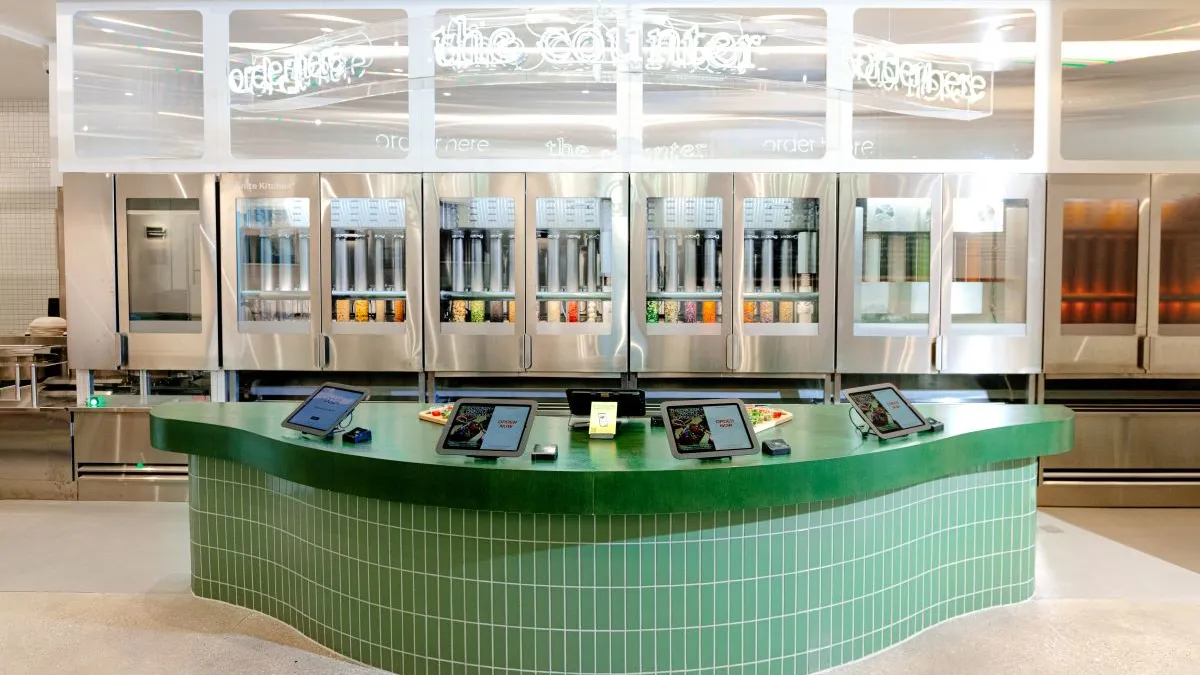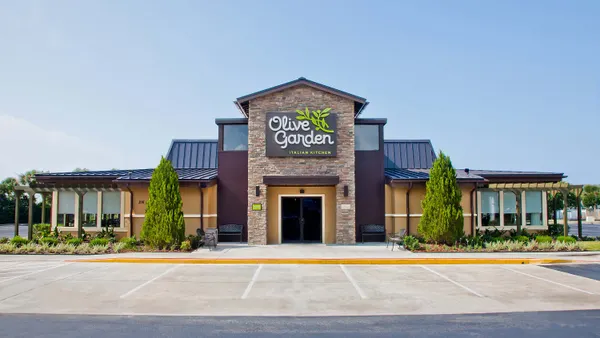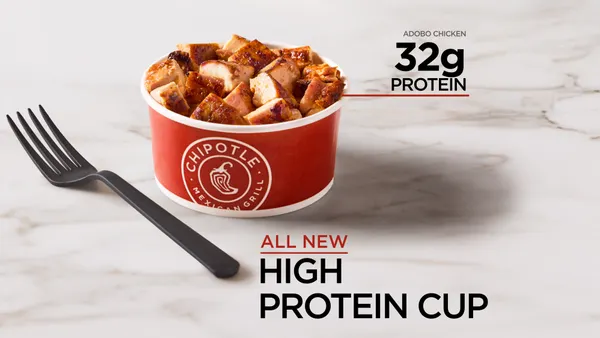Dive Brief:
- Sweetgreen said on its Q4 earnings call Thursday that tests of its Infinite Kitchen automated system at two suburban stores yielded improvements in throughput, order accuracy and labor turnover. Average ticket at those units was over 10% higher than in surrounding markets.
- Sweetgreen CFO Mitch Reback said each Infinite Kitchen represents $450,000 to 500,000 in incremental development costs but could yield a 7-point margin improvement at restaurants where it is installed.
- CEO Jonathan Neman said the cost of retrofitting restaurants with the robot makeline is higher than the $450,000 figure, but that the cost depends on the level of renovations and amount of downtime needed to fit the machine into existing restaurant footprints.
Dive Insight:
Sweetgreen plans to open between 23 and 27 new restaurants in 2024, seven of which will contain Infinite Kitchen technology, Reback said. The chain also aims to renovate three to four large, urban stores to include the automated system.
The $450,000 to $500,000 per-unit incremental cost of the Infinite Kitchen system is equivalent to the yearly starting wage of approximately 14 full-time kitchen workers at one Washington, D.C. Sweetgreen, based on current job posting listing the hourly rate for back-of-house workers as $16.63. That cost is also equivalent to about 23 employees working the average weekly hours for a restaurant production worker based on Bureau of Labor Statistics data.
Neman said the robotic makeline has the capacity to make 500 bowls an hour, and that it hasn’t reached that level of demand in the current test markets. But Neman believes “some of the places that we're going to be testing this year are going to be those heavy urban environments where it does have that [level of demand]. So we do expect a sales lift in those restaurants.”
It’s unclear how the Infinite Kitchen’s production rate compares to a standard store. The company didn’t immediately respond to a request to clarify what about the Infinite Kitchen system was driving higher tickets or, whether the performance difference between the test units and the surrounding market existed prior to the installation of the robotic makelines.
Sweetgreen is also looking to make changes to its Sweetpass program.
“We have not yet seen the benefit of that program. So something that we're actively working on our optimizations and simplifications of the program,” Neman said. He added that the chain wants to make it ”simpler, better for the customer and better for the company to drive more transactions.”
Neman expects the program to be a major priority this year. Sweetgreen plans to simplify its rewards, improve to the in-app experience and create greater personalization.
The company’s Sweetpass+ subscription program, the higher tier of its loyalty program, has yielded “some incrementality out of those guests but it's not a huge member base. So it's not really driving the overall transaction growth in a big way,” Neman said.










